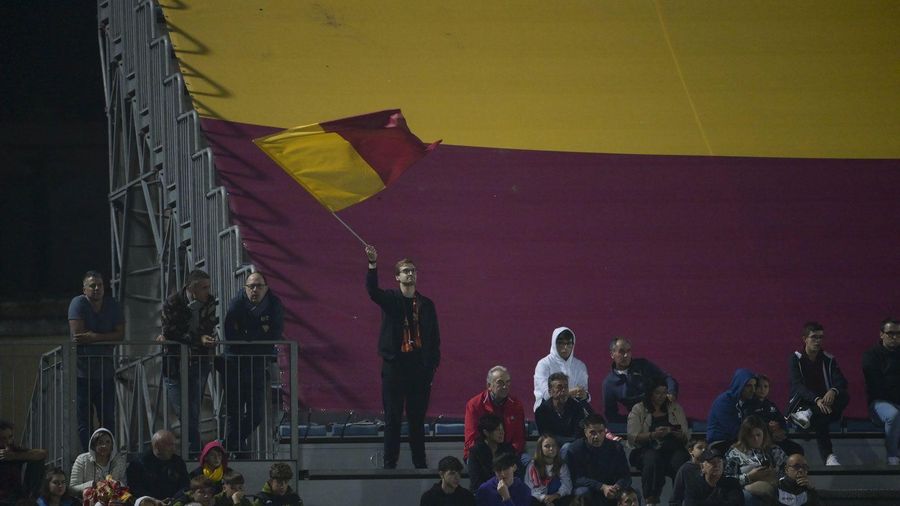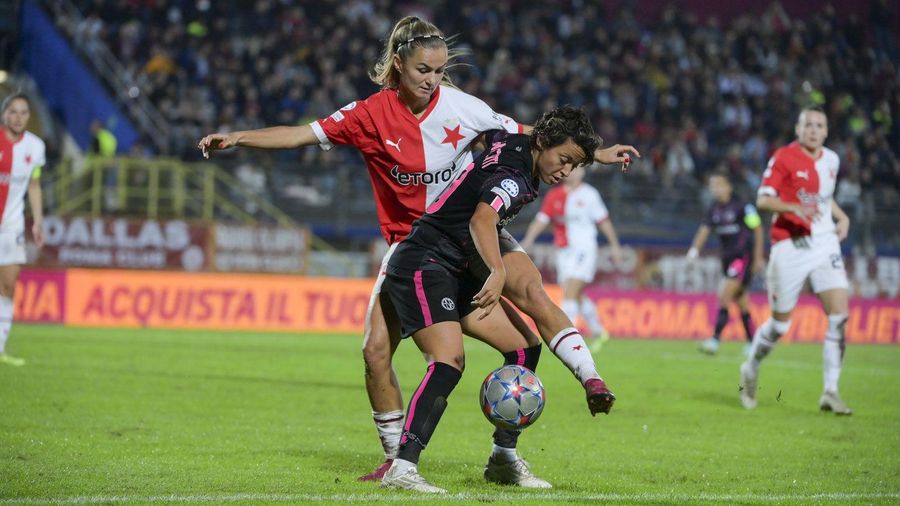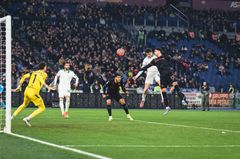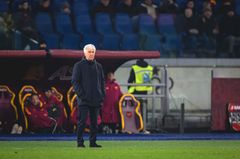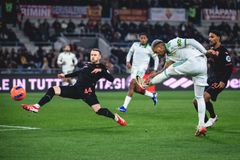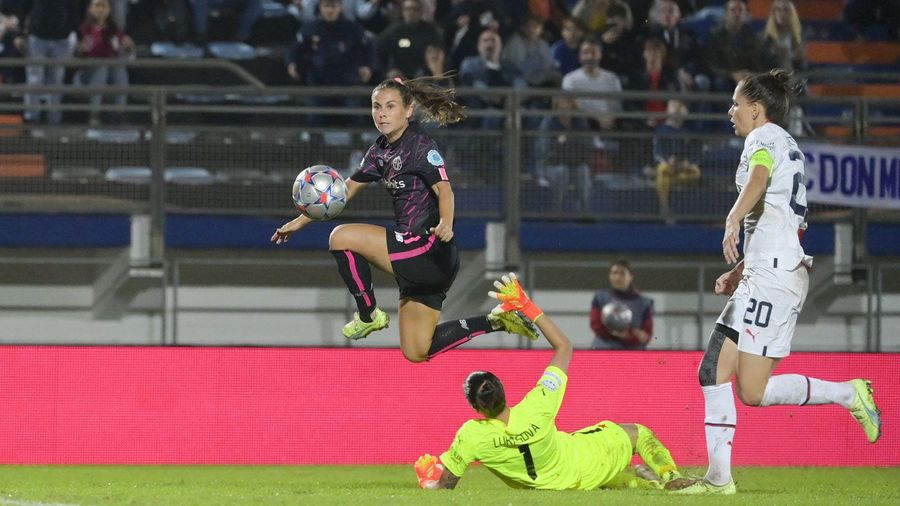
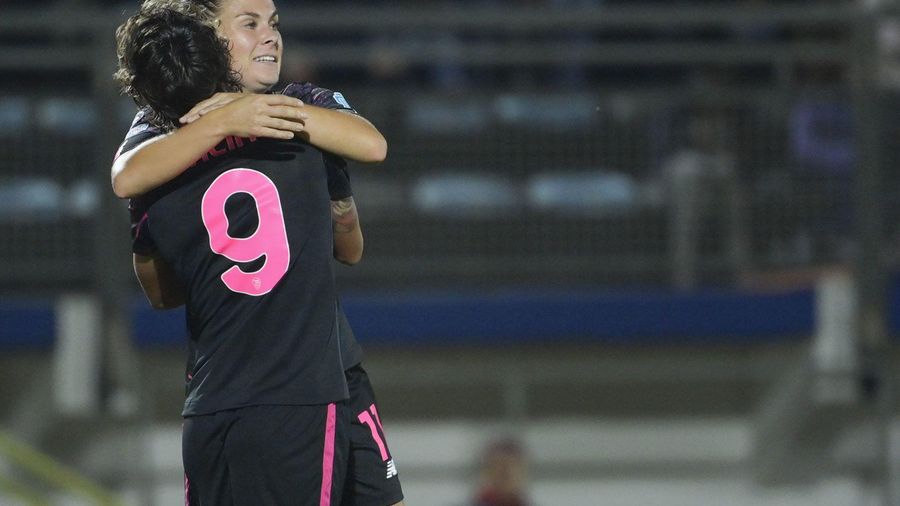
The Champions League group stage is underway and newcomers Roma Women have already shown further signs of how well they are coping with the step up in challenge.
On Thursday, Alessandro Spugna’s side won their first match in Group B, by beating Slavia Prague 1-0 with a goal scored just after the hour mark.
In front of a crowd of more than 2,000 supporters, Roma could undoubtedly sense the heightened anticipation and atmosphere of a group-stage match in the Champions League.
Fortunately, they earned a result to match the significance of the occasion, immediately getting three points on the board after a demanding affair.
Even though there will be sharper performances as time goes by, the first step at this stage was a positive one from a side seemingly getting more used to what this competition requires.
Here, we take a look at some of the themes that emerged from the display and result.
1. PATIENCE IS A VIRTUE
After setting up in a 3-5-2 formation, but with a slightly more reserved approach on the flanks than in some recent encounters, Roma’s goal came from their use of the channels.
A pass from Manuela Giugliano unlocked an attacking avenue for Emilie Haavi, who had space to take advantage of on the right wing before her effort towards goal was helped over the line by striker Valentina Giacinti.
When opting for a shape with wing-backs, Roma have had plenty of joy in the wider areas. Perhaps on this occasion, they could have looked there more often – and they should in their forthcoming fixtures in this competition.
The switch of play to Haavi (who, in contrast to natural defender Elisa Bartoli, was certainly the more attack-minded option in either outer zone) was a threatening option throughout, but Roma only truly unlocked it in the second half. It was also evident to an extent in Haavi’s disallowed goal from the other side of the pitch, for example.
But there was nothing amiss with a patient approach, which included how Spugna made use of his substitutions. Despite having five available, he only used two – waiting until almost the 70th minute to make any adjustment of personnel.
Rather than changing things for the sake of it, Spugna carefully judged who might have an impact and when was the right time to freshen things up. It may have been tempting to refresh as much as possible amid a busy schedule, but focusing on how the game was going, it was best to wait.
In turn, the selected players began to understand how they could cause the most trouble for Slavia Prague. With too many changes, perhaps they might not have worked it out as easily. In the end, though, they clearly began to sharpen up their synchronisation.
2. NEW HOME COMFORTS
This was, of course, Roma’s first time playing at Latina’s Stadio Domenico Francioni. Not permitted to use their usual Stadio Tre Fontane base for this stage of the competition, the team have had to adopt a temporary new home.
It is somewhat symbolic of this new journey of visiting different places within the Champions League. While it is an obvious blow not to be able to play at their own home ground, perhaps it will help Roma’s mentality on their travels knowing that they are already adapting to new surroundings when playing as the designated hosts.
Crucially, there was still a strong Roma backing to make the 72km trip from the capital. The players could therefore still feel like the home team and were able to call upon the loyal support being shown for them as inspiration. In the kind of game that becomes something of a battle like this one, that can always be a pivotal factor to help swing the balance.
Still, the pressure was on in terms of adapting to a different ground and testing terrain. The response to this latest challenge was a positive one, though, which should help how they approach the visits of Wolfsburg and St. Polten in November and December, respectively.
3. FIGHTING FIRE WITH FIRE
Somewhat like the two-legged tie against Slavia’s cross-city rivals Sparta Prague that got Roma to this stage, it was a physically challenging match.
Roma had to earn the right to play, dealing with a tough undertaking that could be stop-start at times. It contrasted a possession-based approach that they might usually favour – and that may come as confidence grows at this level.
The challenge presented by Slavia Prague was different to what they ordinarily confront in Serie A, but they still managed to rise above it and claim the full share of the points. Overall, competing in the Champions League will be about facing different styles; with that in mind, it is encouraging that they could immediately adapt.
As Spugna noted in his post-match interviews: “The great thing is that the team recognised when they needed to dig in and get through a tough period – and then in the second half they came out and got their rewards, thanks in part to some tweaks we made during the break.”
He also observed how Slavia Prague could be “really physical”, which prompted some struggles for his players to retain possession in the first half.
Yet the head coach concluded that in the second half, “we had a bit more courage,” enabling them to become more creative – and ultimately effective.
If Roma’s courage could grow over the course of a match, then hopefully it will over the course of the entire group stage.
And after the first piece of evidence, so should the sense of enthusiasm for how Roma can apply themselves in this elite competition.

 Tickets
Tickets
 Shop
Shop













